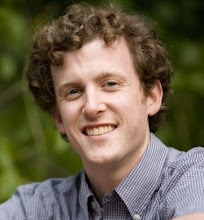 I have to say that it's a bit lonesome moving to a new city where you don't know anybody. As an introvert, I find it a lot easier to try to get the most out of time with myself (which is in short supply during the school year) than to find lots of ways to keep busy spending time with new people. But to be honest, I really have enjoyed this aspect of my summer, because I have been able to do a lot of reading that would not be possible during the semester.
I have to say that it's a bit lonesome moving to a new city where you don't know anybody. As an introvert, I find it a lot easier to try to get the most out of time with myself (which is in short supply during the school year) than to find lots of ways to keep busy spending time with new people. But to be honest, I really have enjoyed this aspect of my summer, because I have been able to do a lot of reading that would not be possible during the semester.I read about 3/4 of Amy Laura Hall's new book, Conceiving Parenthood. (See links to these books in the sidebar at right.) Dr. Hall teaches ethics at Duke, and this book looks at how American mainline Protestantism has willingly bought into the national ideal of "proper" and "model" families in a way that leads us to believe that we are justified not by God's grace, but by our ability to shape our families and homes through science, professional child-rearing, and even eugenics. It had a lot of pictures in it.
I also read Annie Dillard's Pilgrim at Tinker Creek. (Well, all but the final 2 chapters. I got the Dillard and Hall books from the beautiful public library here, and they were due back.) Here's a nice quote from Annie, on the difficulty of seeing: "My eyes account for less than one percent of the weight of my head; I'm bony and dense; I see what I expect."
William T. Cavanaugh's Being Consumed: Economics and Christian Desire was the third conquest of the summer. I really like his work, and I would recommend this book as a first read for someone who had not encountered him before, because it is a bit more anchored to everyday experience. He points out how the currency of consumerism isn't attachment to things, but detachment from things; the whole point of advertising is to capitalize on our infinite and ever-changing desire for anything new or exciting.
"In a consumer culture, we recognize the validity of Augustine's insight: particular material things cannot satisfy. Rather than turning away from material things and toward God, in consumer culture we plunge ever more deeply into the world of things. Dissatisfaction and fulfillment cease to be opposites, for pleasure is not in possessing objects but in their pursuit. [...]
"Desire in consumer society keeps us distracted from the desires of the truly hungry, those who experience hunger as life-threatening deprivation. [...] One can always send a check to help the hungry, but one's charitable preferences will always be in competition with one's own endless desires. The idea of scarcity establishes the view that no one has enough. My desires to feed the hungry are always being distracted by the competition between their desires and my own."

1 comment:
Sounds like a good reading list.
PaTC is one of my favorites.
Post a Comment